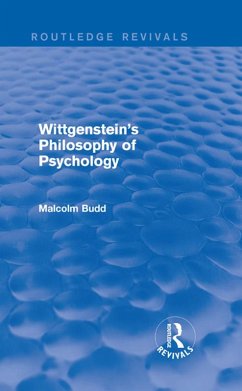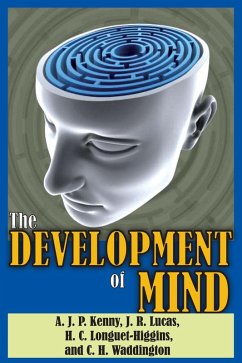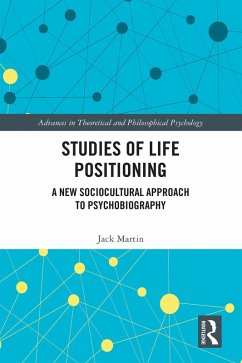
Humanism and Behaviorism (eBook, PDF)
Dialogue and Growth
Redaktion: Wandersman, Abraham; Ricks, David F.; Poppen, Paul J.

PAYBACK Punkte
20 °P sammeln!
Humanism and Behaviorism: Dialogue and Growth explores issues in humanistic and behavioristic approaches to personality change. It seeks to: demonstrate the value of a dialogue between humanism and behaviorism; clarify controversies between the two approaches; evaluate the strengths and weaknesses of each approach; and show the potential of syntheses between parts of each approach to develop new and useful integrations. This book is comprised of 20 chapters and begins with an overview of the state of humanism and behaviorism and the controversies that have divided them, along with the possible...
Humanism and Behaviorism: Dialogue and Growth explores issues in humanistic and behavioristic approaches to personality change. It seeks to: demonstrate the value of a dialogue between humanism and behaviorism; clarify controversies between the two approaches; evaluate the strengths and weaknesses of each approach; and show the potential of syntheses between parts of each approach to develop new and useful integrations. This book is comprised of 20 chapters and begins with an overview of the state of humanism and behaviorism and the controversies that have divided them, along with the possible frameworks for combining the two. The next section focuses on the person, techniques of therapy, and therapist control. Behavior therapy as a humanitarian enterprise is considered. Subsequent chapters assess the effectiveness of humanistic and behavioristic approaches to personality change and the compatibilities between them. The theory of affective behaviorism and its application to effectively teach children with behavior problems to develop self-control is described. Self and personality are also discussed from humanistic and behavioristic viewpoints. Finally, some possible directions for the future of humanism and behaviorism are suggested. This monograph should be useful to undergraduate and graduate students in clinical and personality psychology; to those who intend to do research in and/or practice psychotherapy; and to academicians and professionals in psychology, philosophy, psychiatry, social work, and counseling.
Dieser Download kann aus rechtlichen Gründen nur mit Rechnungsadresse in A, B, BG, CY, CZ, D, DK, EW, E, FIN, F, GR, HR, H, IRL, I, LT, L, LR, M, NL, PL, P, R, S, SLO, SK ausgeliefert werden.













